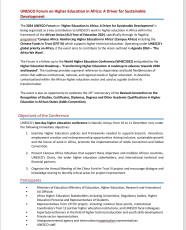- The National Rating Act, 2024, introduces a standardized framework for property valuation and rating across counties. It establishes clear guidelines on how local governments should assess property values and determine the corresponding rates. This framework aims to enhance transparency and efficiency in the rating process, ensuring that property assessments are fair and consistent.
President William Ruto has officially assented to three crucial pieces of legislation: the Division of Revenue (Amendment) Bill, 2024; the National Rating Bill, 2022; and the Water (Amendment) Bill, 2024, during a ceremony at State House Nairobi on December 4, 2024.
The Division of Revenue (Amendment) Act, 2024, is particularly significant as it allocates KSh387 billion as an equitable share of revenue to counties for the financial year 2024/2025. This new allocation comes after an initial proposal of KSh400 billion was revised downward to KSh380 billion following the withdrawal of the Finance Bill.
"Eventually, the National Assembly and the Senate struck an agreement and allocated KSh387 billion to counties, representing 24.67 per cent of the most recent audited revenue accounts. This is way above the 15 per cent minimum constitutional requirement. The Act has allocated KSh2.2 trillion to the National Government," said President Ruto.
The National Rating Act, 2024, introduces a standardized framework for property valuation and rating across counties. It establishes clear guidelines on how local governments should assess property values and determine the corresponding rates. This framework aims to enhance transparency and efficiency in the rating process, ensuring that property assessments are fair and consistent.
Meanwhile, the Water (Amendment) Act, 2024, paves the way for public-private partnerships in financing water development projects overseen by National Government agencies. This legislation is expected to mobilize additional resources and expertise for the development of critical water infrastructure, addressing the growing demand for reliable water supply and promoting sustainable practices in water management.
Read More

-1733300941.jpg)



-1733303540-md.jpg)





-1733303540-sm.jpg)
